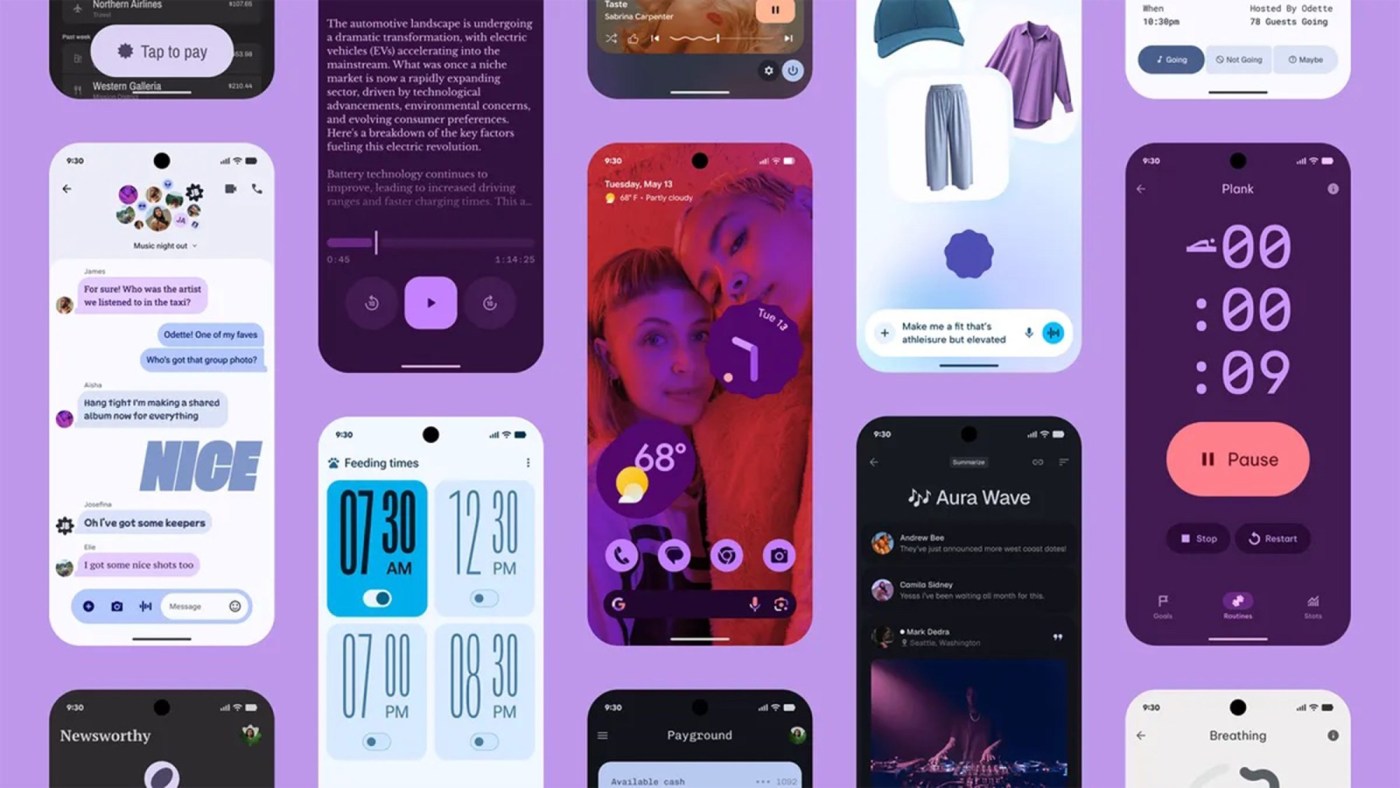
By Vlad Savov, Bloomberg
Google unveiled the biggest update to its Android mobile operating system in years, weeks before its biggest competitor in the space, Apple, is expected to give a preview of its overhauled iPhone software.
The Alphabet unit is rolling out a new, bolder design language — called Material 3 Expressive — that spans the entire Android operating system as well as Google’s own apps like Gmail, it said in a blog post on Tuesday. The company has compiled a set of design guidelines, which includes using more springy animations, shapes, contrast and larger typography.
Related Articles
Google facing at least 12 billion euros in civil claims across Europe
Major social media platforms fail to protect LGBTQ users, advocacy group GLAAD says
Google to pay $50 million to settle lawsuit claiming it paid Black workers less
Alphabet shares take $120 billion blow as search warnings blare
How Google became the internet giant at the center of a government crackdown
It plans to showcase the upgrades in further detail at its Google I/O developer conference in Mountain View, California, starting May 20. The software will be available to download in its final form later this year, starting with Google’s own line of Pixel phones.
Android is the world’s most widely used mobile operating system, powering devices by companies from Samsung Electronics Co. to Xiaomi Corp. Google’s aim was to make the experience feel more natural and fluid with more room for personalization, it said. The company iterated through 46 research studies with more than 18,000 participants to devise the changes — which it says help make the software more usable too, especially for older users.
Apple, meanwhile, plans to fundamentally change the look of its operating systems, making them simpler and more consistent by changing the style of icons, menus and apps, Bloomberg News has reported. Its Worldwide Developers Conference is scheduled to start June 9.
It may take time for these changes to proliferate through the Android ecosystem, as device makers like Xiaomi, Oppo and Vivo control their own software-update schedules. App developers will also need to refresh their software to ensure consistency with Google’s new design language.
Beyond smartphones, Google is also extending its design changes to Wear OS, its smartwatch operating system, and expanding the reach of its Gemini artificial intelligence system to more platforms. Those include watches and vehicles that run either Android Auto or are part of the Cars with Google program.
The company had previously announced that Gemini will also be available on televisions running Google TV, along with mixed-reality headsets running Android XR.
On Wear OS, the update will allow smartwatch owners to do things like set reminders or get information about upcoming calendar appointments. It should also make supported devices more energy efficient, with the possibility of up to 10% more battery life, Google said.
Security updates
Aside from the redesigned software, Google announced several new or improved security features for Android users. It’s expanding its existing AI-powered Scam Detection tool for Google Messages to include additional kinds of fraud, including financial impersonation, toll road, gift card, prize and technical support scams. Until now, the technology was designed to detect package delivery and job seeking schemes.
The company is also piloting in-call protection for banking apps, starting in the UK.
Google also plans to help ensure major settings changes — including full device resets — are made by the device owner rather than an intruder. Separately, it’s rolling out a new Find Hub feature that will allow users to do things such as check if loved ones got home safely.